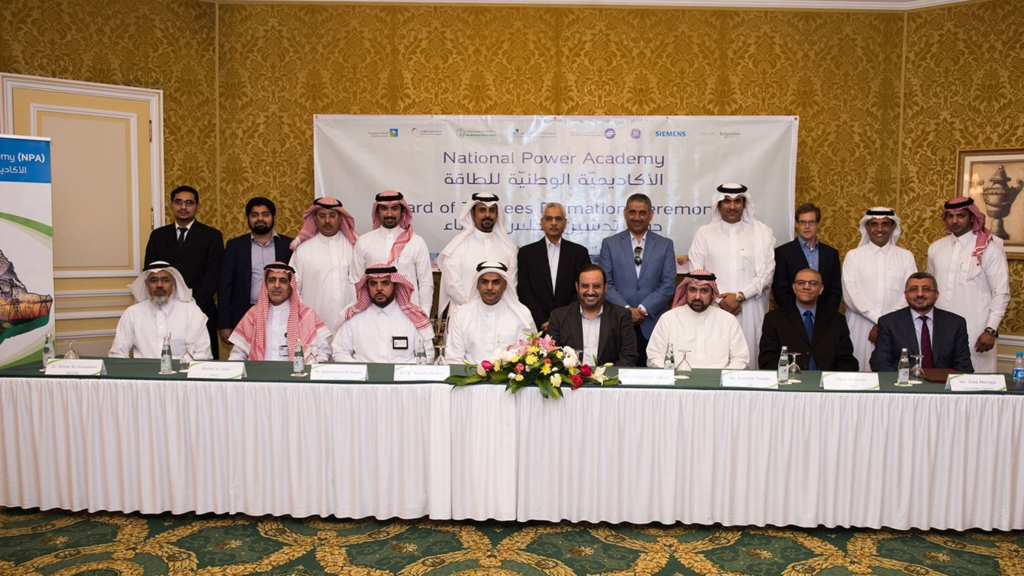National Power Academy holds first board meeting, appoints Ahmed S. Al-Essa as Executive Director

The inaugural board meeting of the National Power Academy (NPA) was held last Thursday (May 19) in Dhahran during which the Charter was officially signed by the eight Founding Stakeholders. In addition Ahmed S. Al-Essa was appointed as NPA’s first Executive Director of the Academy.
NPA board members at the signing event included Mr. Abdulaziz M. Judaimi from Saudi Aramco; Mr. Abdulrahman M. Al-Obayed from Saudi Electric Company; Dr. Abdulaziz Al-Amr from Technical and Vocational Training Corporation; Dr. Omar Abdullah Al-Suwailem from King Fahd University of Petroleum and Minerals; Mr. Abdullah Bin Ibrahim Alabdulkarim from Saline Water Conversion Corporation; Mr. Ammar M. Zwawi from General Electric; Mr. Marvin Benjamin from Siemens; and, Mr. Ziad Mortaja from Schneider Electric.
The NPA is a unique public-private partnership to develop skilled human capital for the Kingdom’s ever-growing power and energy sectors providing specialized training programs in Electrical, Mechanical, Renewables, Nuclear, Operations and Manufacturing disciplines. The Academy will play a leading role to support Saudi Vision 2030 by providing the manpower required to ensure a smooth transition to the thriving and vibrant economy outlined in Saudi Vision 2030.
The NPA will be the first of its kind in the region to offer innovative and up-to-date training programs for emerging sectors such as smart grid, energy efficiency and renewables. It will offer an industry-led training model, world-class laboratories, real-life training facilities, a multidisciplinary training approach, innovative teaching methodologies and an applied research and development center.
The first campus of the NPA will be located in Dammam, with an expected start date before the end of 2016, and a second campus being planned for Al Hasa is scheduled to open in 2018.
The NPA will bring many benefits to the Kingdom including fulfilling the expanding workforce needs for the energy sector, reducing unemployment, contributing to the Kingdom’s economic growth, catalyzing the development of a thriving knowledge based economy and promoting the transition to an energy efficient national economy.






 Email: info@cyber-gear.com
Email: info@cyber-gear.com